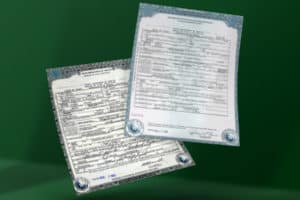Once the estate settlement process is underway a lot of things will need to happen. Although it can take years for some estates to be settled, it will feel like you’re juggling a lot at once.
By now, you’ve processed a lot emotionally and mentally, you’re ready for things to just be over. That’s completely normal, and the silver lining is that by this stage you’re nearing the end. However, there are a number of very important things that need to be handled, often within a certain timeframe.
Go Into Probate
The legal process for executing the will is known as probate. Usually there is a city or county office that handles probate. The overall purpose of probate is twofold:
- Make sure debts are paid.
- Make sure remaining assets go to the proper beneficiaries.
Whether probate is officially needed will vary by the location and situation. There’s also something called accelerated probate that may be possible.
Also keep in mind that how assets are titled can determine whether they go through the probate process or transfer directly to the beneficiary. In order to direct the use of assets connected to the state, you’ll have to obtain something called “letters of administration” from the probate court.
File Claims and Notify Insurance Companies
Before the estate can be settled, you’ll need to file claims and receive benefits on existing insurance policies, such as a life insurance policy. Even if no claim needs to be filed you’ll still need to notify insurance companies to close accounts for things like health insurance and car insurance.
You’ll also need to notify your own insurance companies to update your accounts if the deceased was named a benefactor, co-policy owner or emergency contact.
File for Employment Benefits
When a person passes away while still a part of the workforce they could be entitled to employment benefits. You’ll need to contact the employer to get information on pension payments, union benefits, etc.
Pay Any Outstanding Debts
Often people die unexpectedly and have no time to settle affairs. It’s not uncommon for people to have unpaid bills and debt that must be paid after their death. Creditors should have already been contacted and given time to submit bills for payment. Once you receive the bills you’ll also need to check your loved one’s bank statements to ensure the bills haven’t already been paid.
All bills that are deemed legitimate will be paid out of the estate before assets are given to any beneficiaries.
Take an Inventory of the Assets
All of the assets in the estate have to be inventoried before anything is distributed. In some states, this is the first step after initating probate.
The inventory process can be long and tedious if there are a lot of assets, they are spread across various locations or the assets aren’t well documented. You may also need to hire an appraiser if you have unique or one-of-a-kind assets that are difficult to value.
Marshalling the assets (the technical term) is a huge task that falls on the executor of the will. But the executor doesn’t have to do it along. There are research firms who can help you track down all the assets, which can be a huge timesaver.
Retitle or Transfer the Assets
Once all of the assets have been located you can begin the process of retitling and transferring. To do this you’ll want to open a new bank account first. Typically, funds from the estate need to be in a separate account under the estate’s name unless an account was held with another person.
The bank account will also serve as the source of funding for paying creditors, filing taxes and making payments on assets, such as a home or vehicle.
Distribute Assets to the Heirs
Once all debts with creditors are settled and all taxes on the estate are paid assets can then be distributed to the heirs. Distributing the assets will be handled by the executor.
What Happens When There’s No Will
When a person dies without a will, state law determines how the estate is settled and who receives the person’s assets. A local probate judge in the county where your loved one had their primary residence will provide guidance on the next steps that need to be taken to settle the estate.
KEEP READING
What Should Be Done Immediately After a Death
Steps to Take Before a Burial or Cremation






